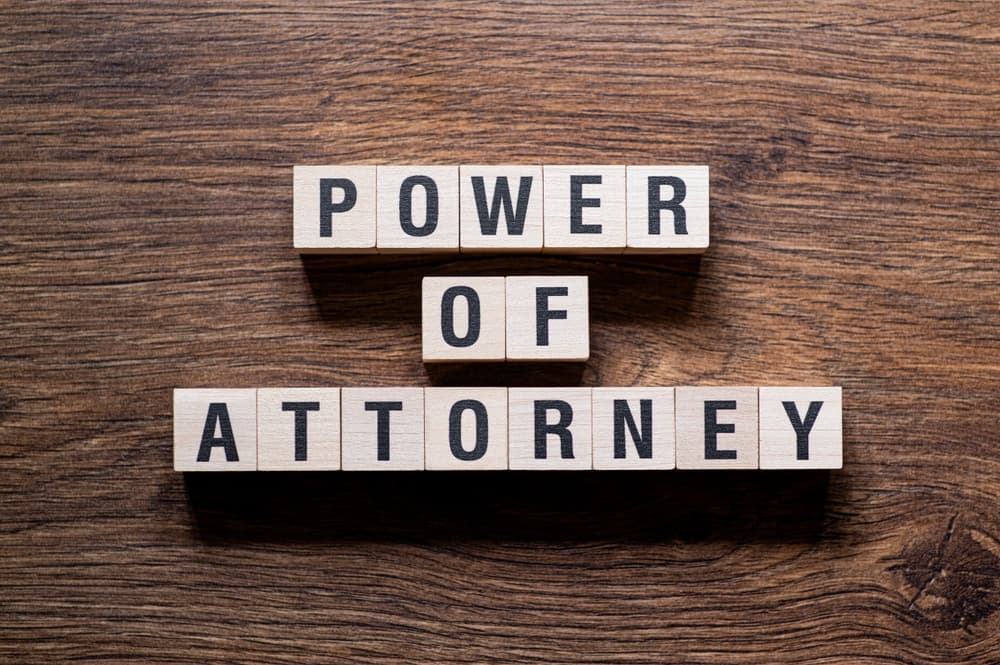Power Of Attorney: Basic Things You Need To Know
Power Of Attorney: Basic Things You Need To Know

Life is full of unexpected twists and turns. While we can’t predict the future, we can take steps to be prepared for it. One way to ensure your affairs are in order, even if you’re unable to make decisions for yourself, is by establishing a power of attorney (POA).
But what exactly is this legal document, how does it work, and why is it important in estate planning?
Whether you’re considering creating one for yourself or helping a loved one, insights from experienced power of attorney lawyers can provide peace of mind for today and the future.
What Is a Power of Attorney?

This legal document gives someone the authority to act on your behalf. It essentially allows someone to step into your shoes and make decisions for you if you cannot. The person granting this authority is called the principal, while the person receiving it is referred to as the agent or attorney-in-fact.
The scope of the agent’s authority can vary. Some POAs allow the agent to handle broad responsibilities, like managing finances or deciding on healthcare. In contrast, others limit their power to specific tasks or timeframes. What’s key is that the power given is tailored to meet the principal’s specific needs and wishes.
Why Is a Power of Attorney Important?
Setting up this legal document is an essential part of estate planning, especially in a state like Florida, which has its own laws governing how POAs work. Here are a few reasons why having this legal document in place can be so vital:
- Preparation for the unexpected. Accidents, illnesses, or sudden medical emergencies can happen to anyone. Having a trusted person ready to make important decisions on your behalf can ensure that your financial, legal, or medical matters are handled smoothly.
- Avoiding court intervention. Without a valid agent, your family may have to go through a lengthy and costly court process to gain guardianship if you become incapacitated. A POA helps avoid this by laying out your wishes in advance.
- Ensuring clarity and control. This legal document helps ensure that your decisions are carried out your way. You decide who you want to trust, what powers they’ll have, and when those powers go into effect. It’s a legal safety net.
Remember, life happens when you least expect it. Having a power of attorney is a proactive way to protect yourself and your loved ones from unnecessary stress and confusion down the road.
Types of Power of Attorney
Not all powers of attorney are the same. Depending on your situation, you may choose one that best suits your needs. Here are the main types recognized in Florida.
General Power of Attorney
This gives your agent broad authority to handle tasks like managing your bank accounts, paying your bills, or handling real estate transactions. It’s often used for temporary needs, such as when someone is unavailable but capable of making decisions.
Durable POA
A durable power of attorney remains in effect even if the principal becomes incapacitated. This type of POA is common in estate planning, as it ensures someone can handle important decisions if you can no longer.
Limited (or Special) POA
This grants authority to the agent for a limited set of tasks or a defined period. For example, you could give someone the power to sell a piece of property on your behalf while you’re out of the country.
Healthcare Power of Attorney
Also called a medical power of attorney, this document gives your agent the power to make healthcare decisions if you cannot communicate your wishes. This includes decisions about treatments, medications, and even life support based on your preferences.
Springing PO
Unlike other types that take effect immediately upon signing, a springing power of attorney “springs” into effect only when a specific event happens, such as your incapacitation. Florida law requires precise language to ensure this power is enforceable.
It’s critical to choose the right type for your situation. Speaking with an experienced attorney can help clarify your options and craft a plan that meets your personal and family needs.
Florida-Specific Rules About Power of Attorney
If you live in Coral Gables or anywhere in Florida, you should be aware of some unique state laws related to POA:
- Limited chance for springing POA in most cases: While some states allow springing powers of attorney, Florida limits their use. Most POAs in the state take effect as soon as the document is signed unless otherwise stated.
- Witnesses and notarization: For a power of attorney to be valid in Florida, it must be signed in the presence of two witnesses and a notary public. This ensures the document is legal and enforceable.
- Specific powers must be listed: Florida law requires explicit language when granting certain powers, like the ability to make healthcare decisions or adjust a trust. General language isn’t enough, so every detail matters.
- Revoking a POA: These documents are not set in stone. You can revoke a power of attorney anytime, provided you’re mentally capable. It’s also a good idea to periodically review your documents to ensure they still align with your current needs.
Because Florida laws surrounding powers of attorney can be complex, it’s wise to have an attorney draft or review your POA to ensure it’s legally sound.
How To Choose the Right Person as Your Agent

One of the most important parts of creating this legal document is deciding who will serve as your agent. This person needs to be someone you trust completely because their decisions could majorly impact your life. Here’s what to consider when selecting an agent:
- Trustworthiness: Make sure they’ll act in your best interests.
- Responsibility: Your agent should be organized and capable of managing financial or medical tasks.
- Availability: Select an agent willing and able to step into this role when needed.
- Communication Skills: They should be able to work with your family, healthcare providers, and financial institutions to carry out your wishes.
If you’re unsure of how to proceed, consider speaking with an estate planning law firm that can provide clarity during this complex legal process.
Are You Prepared For the Future?
Setting up a power of attorney may seem daunting, but it’s one of the most important steps to protect your future. It provides clarity, empowers your loved ones to act on your behalf, and ensures your wishes are fulfilled when life takes unexpected turns.
Are you considering creating a power of attorney in Florida? Or do you have questions about your existing estate plan? Contact experienced estate planning lawyers in Coral Gables online or at (305) 735-2689 to help with the process and gain better peace of mind about your future.
Have questions about how to get started on your estate plan or estate needs?
Have questions about how to get started
on your estate plan or estate needs?
Contact the experienced estate planning professionals at The Estate Plan
by calling us at (305) 677-8489.
Contact the experienced estate planning professionals at The Estate Plan by calling us at
(305) 677-8489.

